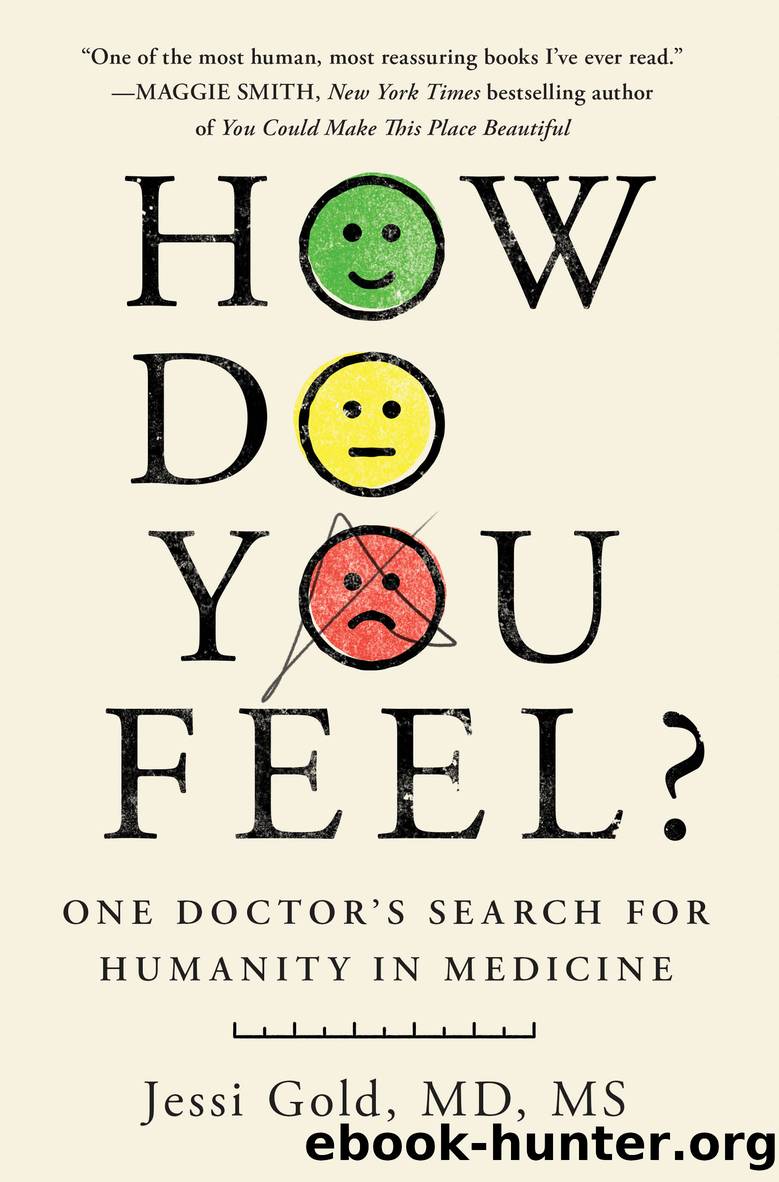How Do You Feel? by Jessi Gold

Author:Jessi Gold
Language: eng
Format: epub
Publisher: S&S/Simon Element
Published: 2024-10-08T00:00:00+00:00
* * *
Not all perfectionism is the same. In 1971, the human dynamics scholar D. E. Hamachek suggested there were two types: normal (or adaptive) perfectionism and maladaptive (or neurotic) perfectionism.8 Normal perfectionists strive for perfection without compromising their self-esteem; their efforts can even enhance how they feel about themselves because they derive pleasure from their desire to achieve and reach their goals. They also seem to be able to sometimes ease up a bit, allowing for the occasional mistake. In contrast, maladaptive perfectionists set unrealistic goals and feel dissatisfied when they donât reach them. They regularly have thoughts about not being âgood enoughâ or they âshouldâ or âcouldâ have done better. And while the adaptive type of perfectionism might help a doctor achieve good results in medicine, the maladaptive type is related to mental health issues and burnout. In one study of 169 first-year medical students,9 for instance, those with maladaptive perfectionism were more likely to experience feelings of shame, embarrassment, and inadequacy than did their peers who did not meet the criteria for maladaptive perfectionism. They were also more apt to report moderate and severe levels of depression and anxiety. Perhaps the desire for perfection can help explain why people in the medical field tend to experience such high rates of emotional distress.
Knowing this is important to understanding the best way to support people in medicine and those who want to go into medicine. One meta-analysis found that the overall prevalence of depression in medical students was 27.2 percent,10 compared with 8.4 percent in the United States as a whole.11 As a practitioner who sees students like Naya on a regular basis, while I know medical school makes students much more depressed, I also know that the mental health effects of this training process start earlier, impacting whether students choose to stay in the field, or even pursue it in the first place. Premed students who experience greater burnout report a decrease in their interest in pursuing a career in medicine over time, with steeper declines in women.12 That, and the fact that I want Naya to get better for her own sake, is why Iâm glad she came to see me when she did.
Download
This site does not store any files on its server. We only index and link to content provided by other sites. Please contact the content providers to delete copyright contents if any and email us, we'll remove relevant links or contents immediately.
Periodization Training for Sports by Tudor Bompa(8273)
Why We Sleep: Unlocking the Power of Sleep and Dreams by Matthew Walker(6725)
Paper Towns by Green John(5191)
The Immortal Life of Henrietta Lacks by Rebecca Skloot(4588)
The Sports Rules Book by Human Kinetics(4386)
Dynamic Alignment Through Imagery by Eric Franklin(4217)
ACSM's Complete Guide to Fitness & Health by ACSM(4060)
Kaplan MCAT Organic Chemistry Review: Created for MCAT 2015 (Kaplan Test Prep) by Kaplan(4012)
Livewired by David Eagleman(3774)
Introduction to Kinesiology by Shirl J. Hoffman(3772)
The Death of the Heart by Elizabeth Bowen(3622)
The River of Consciousness by Oliver Sacks(3604)
Alchemy and Alchemists by C. J. S. Thompson(3522)
Bad Pharma by Ben Goldacre(3428)
Descartes' Error by Antonio Damasio(3279)
The Emperor of All Maladies: A Biography of Cancer by Siddhartha Mukherjee(3163)
The Gene: An Intimate History by Siddhartha Mukherjee(3098)
The Fate of Rome: Climate, Disease, and the End of an Empire (The Princeton History of the Ancient World) by Kyle Harper(3067)
Kaplan MCAT Behavioral Sciences Review: Created for MCAT 2015 (Kaplan Test Prep) by Kaplan(2986)
